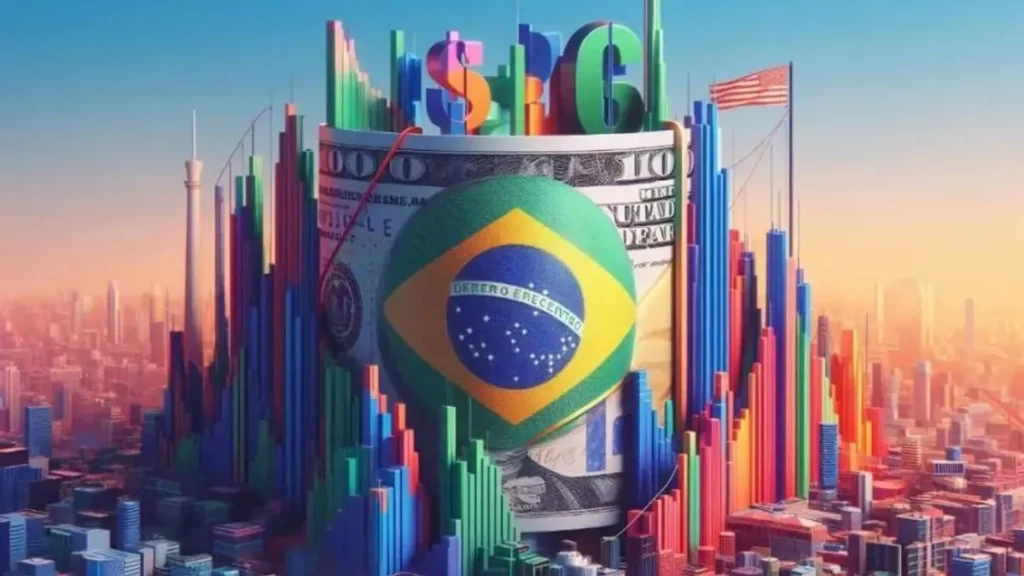Mercado Libre Launches Meli Dollar Stablecoin in Brazil

Mercado Libre, a leading e-commerce company in Latin America, has introduced a USD-pegged stablecoin called Meli Dollar to its Brazilian users. This new offering is available through its financial subsidiary, Mercado Pago.
As Brazil is Mercado Libre’s largest market, the launch of Meli Dollar aims to provide users with a more stable financial tool amid economic fluctuations. Users can trade this stablecoin using local currency through the Mercado Pago app.
How Meli Dollar Works
In recent years, cryptocurrency trading in Brazil has surged, with stablecoins becoming increasingly dominant. To align with this trend, Mercado Pago allows users to purchase and trade Meli Dollar using Brazilian Real (BRL). Initially, these transactions will be free of charge.

To ensure the stability of Meli Dollar, Mercado Pago has partnered with Ripio, a leading crypto platform in Latin America. Ripio acts as the market maker, handling all transactions conducted through the Mercado Pago app, ensuring smooth and secure user experiences.
Mercado Libre’s Continued Innovation in Cryptocurrency
Mercado Libre has been exploring the cryptocurrency sector for several years. In 2021, Mercado Libre began accepting Bitcoin (BTC), Ethereum (ETH), and Pax Dollar (USDP) as payment methods through Mercado Pago in Brazil.
The company also added $7.8 million worth of Bitcoin to its asset portfolio that year. In 2022, Mercado Libre launched Mercado Coin, a token used in its loyalty rewards program. Customers earn Mercado Coin as a cashback for online shopping, which can be redeemed for purchases or traded on the MercadoPago crypto exchange, launched in late 2021.
In 2023, the company expanded its crypto operations by introducing USDP in Mexico and Circle’s USD Coin (USDC) in Chile.
The launch of Meli Dollar comes amid rapid growth in the global stablecoin market. In just one week in August 2024, the market capitalization of stablecoins increased by $2.21 billion, driven mainly by the growth of Tether’s supply.
The global stablecoin market now has a total capitalization of $168.42 billion, with Tether holding a 69.4% market share. Meanwhile, Tether plans to launch a new stablecoin pegged to the UAE Dirham (AED), further expanding its presence in the Middle East.
The Brazilian Crypto Market and Regulatory Landscape
Cryptocurrency trading in Latin America has shown significant growth, with varying levels of activity across countries. Brazil leads the region, with a trading volume of $6.9 billion from January to May 2024, capturing 53% of the Latin American market. This growth is fueled by Brazil’s crypto-friendly policies and strong domestic demand for major cryptocurrencies like Bitcoin and Ethereum.
Brazil’s market dominance is reflected not only in trading volume but also in the number of active exchanges and users. Although other countries like Mexico and Argentina are also experiencing growth in crypto trading, their market shares remain relatively small compared to Brazil.
Brazil is currently in the process of developing and refining its cryptocurrency regulations. According to the Central Bank of Brazil (BCB), a new regulatory framework for cryptocurrencies is expected to be finalized by the end of 2024. This phased regulation aims to establish clear operational standards and authorization procedures for Virtual Asset Service Providers (VASPs), while enhancing transparency and protecting investors.
The regulatory framework is being developed based on a law passed in 2022, which granted the BCB authority to regulate the crypto industry. To ensure comprehensive policy development and public support, the BCB conducted its first public consultation in late 2023 and plans a second consultation in the latter half of 2024. These consultations aim to gather feedback and finalize the regulatory text.
Additionally, Brazil’s regulations focus on combating money laundering and terrorism financing activities, requiring VASPs to comply strictly with these rules. The country also prohibits the use of cryptocurrencies for political donations to ensure transparency and traceability in election funding.
While Brazil’s progress in crypto regulation has faced delays, the BCB’s approach through public consultations aims to establish a robust regulatory framework to address the complexity and rapid evolution of the cryptocurrency market.